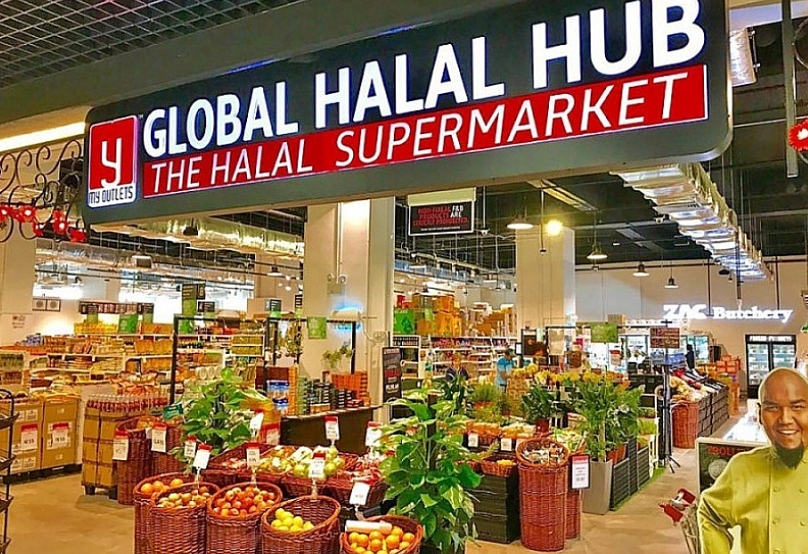Businesses seek to penetrate deeply into global Halal market
VOV.VN - The global Halal market is poised to bring in US$5 trillion annually, thereby opening up great opportunities for Vietnamese businesses to make inroads into the lucrative market, heard a recent workshop held in Ho Chi Minh City.

Ly Kim Chi, vice president of the Ho Chi Minh City Business Association, pointed to the fact that the global Halal market is growing fast across all continents, from Asia, the Middle East, Africa to Europe and America.
Halal products are now increasingly popular among non-Muslim consumers in major economies like China, the United States, Japan, and Europe, because of their high standards of food safety and the environment, said Chi.
Vietnam, one of the major exporters of agricultural and aquatic products in the world, possesses many typical products such as rice, rubber, tea, cashew, coffee, pepper, shrimp, and fish.
However, local food businesses can only partially meet the needs of Muslim countries, because in order to ship products to the Muslim world, relevant businesses must have proper Halal certification for their products.
The problem, according to the executive, is that Halal standards and regulations are becoming increasingly strict. Indeed, the Halal certification is not permanent and not equally recognised in all countries, for all products, and businesses are required to register for re-certification multiple times in different markets.
At present, the Halal industry is just in its infancy in Vietnam, and in order for it to become one of the main export drivers it should learn from the experience of other countries, especially Malaysia, and strive to create opportunities for businesses, Chi suggested.
Taking the floor, Wong Chia Chiann, consulate general of Malaysia in Ho Chi Minh City, and experts from the Muslim community shared their knowledge about the regulations, standards, and how to apply for certification for Halal products.
According to Wong, Vietnam is one of the food producers and is geographically located near many Muslim-majority countries, such as Malaysia and Indonesia in Southeast Asia. Vietnamese businesses have a general understanding of Halal products, although it is not enough, she said.
Halal products are subject to Islamic rules, meaning that product integrity, safety, and hygiene standards are maintained throughout the supply chain, she explained,
Vietnamese businesses that wish to get the Halal certification must get to know what products are allowed and not allowed under Sharia law, a religious law for Muslims, said Wong.
In addition, she pointed out that Halal and non-Halal products cannot be produced in the same production line.
In order develop the Halal industry in Vietnam, she suggested that local businesses bring Muslim experts and personnel into their organisations to develop Halal policies, and to monitor the Halal process.
As a means of achieving a long-term solution, she said that Malaysia will propose developing domestic personnel and experts on the Halal certification process, especially within the Muslim community.
Malaysia is willing to share its experience in building a better Halal ecosystem in Vietnam, she stated.
The world market for Halal food serves around two billion Muslims worldwide. The size of the global Halal economy is expected to grow to about US$10 trillion by 2027, with the market for Halal products widely distributed around the world, from Muslim to non-Muslim countries.
However, the amount of Halal food exported by Vietnamese businesses remains modest. Each year, about 50 local businesses get Halal certification for main products such as seafood, beverages, canned food, confectionery, vegetarian food, and pharmaceuticals.
